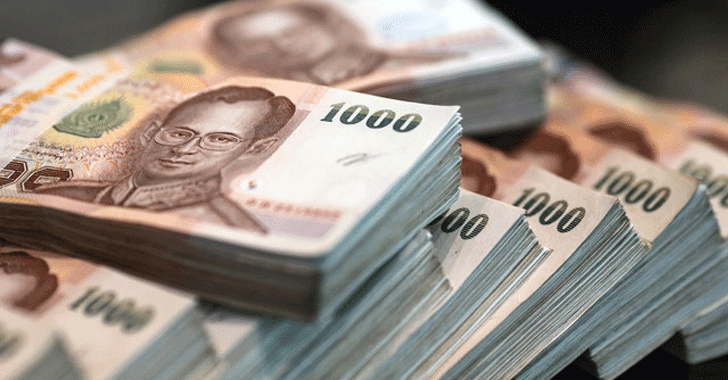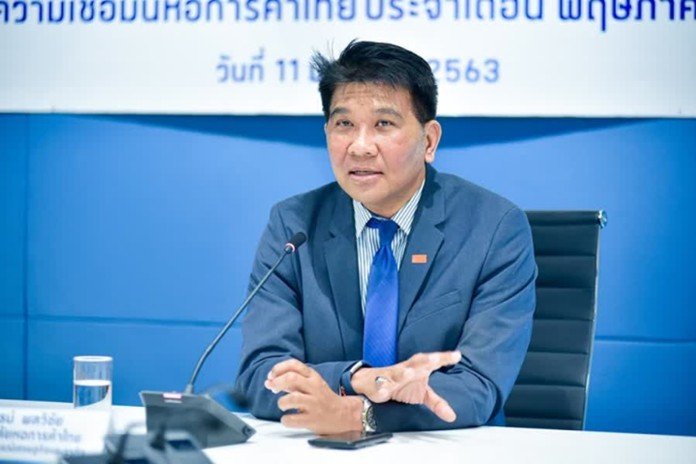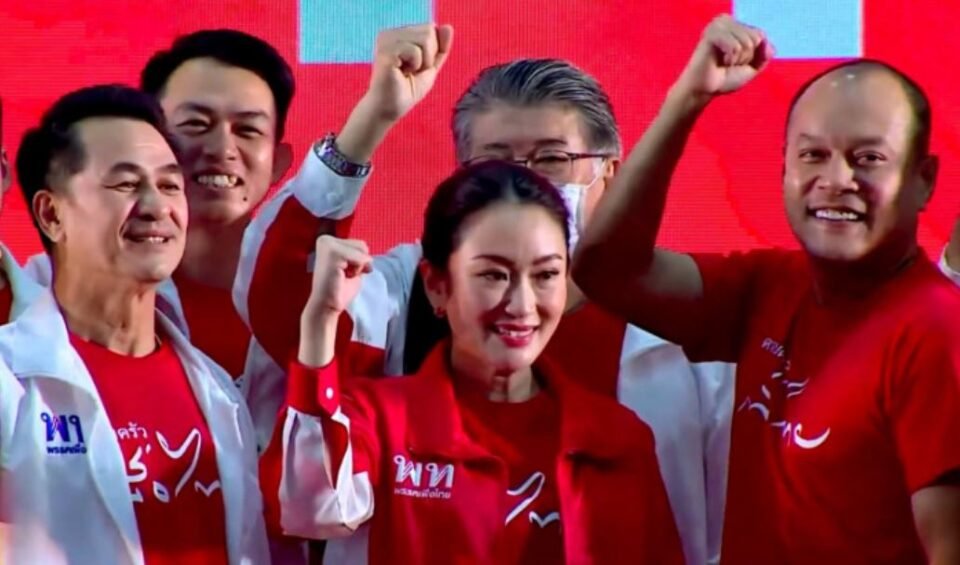Will Pheu Thai’s contentious promise to give 10,000 baht to every adult Thai citizen be the “killer policy” that ensures a resounding victory in the general election on May 14?

According to comments made by several of its leading members, the opposition party, which is attempting to reclaim political power after an eight-year absence, appears to agree.
They claim that the promised handout may be implemented as early as January 1 of the following year if the party forms the post-election government.
In spite of increasing cautions regarding the handout commitment, Pheu Thai has maintained its position and dismissed the criticism as politically driven.
committing significantly
The proposal was announced by the party on April 5 during an election rally in Nonthaburi, where it was said that its goal was to boost the economy.
According to the concept, each Thai citizen who is 16 years old or older will receive an electronic coupon worth 10,000 Baht in their digital wallets. Only neighborhood stores and businesses located 4 kilometers from the recipient’s registered address accept the funds. Before the initiative ends, recipients have six months to use the e-coupon.

The project will cost an estimated 550–560 billion baht because there are 55–56 million Thais who are 16 or older.
being criticized
The plan has been criticized as a “irresponsible” attempt to use the state budget to buy votes and as an illustration of blatant populism meant to seize power.
Others alleged that the commitment violates election law, which forbids “a promise to give money, property, or any other benefit in order to induce an eligible voter to cast a vote for any candidate.” Some detractors warned that the initiative would place a strain on government resources.
The president of the University of the Thai Chamber of Commerce, Thanavath Phonvichai, issued a warning that a handout worth more than 500 billion baht may increase the national debt and jeopardize the country’s monetary and fiscal stability. He said that such a significant sum of money ought to be used for long-term national development projects instead.
In addition, he questioned if it was necessary to grant 10,000 Baht to everyone who is 16 years old or older, especially those with substantial earnings and private wealth.

“Great-great-grandfather of populism”
The Seree Ruam Thai (Thai Liberal Party) leader and former election commissioner Somchai Srisutthiyakorn referred to the Pheu Thai vow as “the great-grandfather of populism” in his statement. He claimed that by giving prizes to voters via a digital wallet, the parties might possibly be breaking the election law.
Tarisa Watanagase, a former governor of the Bank of Thailand, questioned Pheu Thai’s ability to generate sufficient funds to implement the digital distribution. The idea will cost at least 500 billion baht, or up to 18% of the state budget, she said.
She referred to the plan as “irresponsible” and said it was an attempt to appease people at the expense of maintaining fiscal responsibility. A Pheu Thai government, according to the former central banker, would need to borrow money to pay for the proposal, increasing the nation’s overall debt.
Election Commission wants clarification
Critics also doubt whether Pheu Thai gave the idea a proper review before making the giveaway guarantee.
They said that important party figures had given contradictory information about the proposal. The party initially claimed that the distribution would be made in the form of digital currency, but later changed it to e-vouchers in the digital wallet.
The idea was apparently the subject of a disagreement between the party’s economic and legal staff, notably on how it would be paid.

The electoral Commission (EC) has requested formal explanations of electoral pledges that might require state assistance from parties, including Pheu Thai. According to Article 57 of the Political Parties Act, the explanations must contain the expected budget, the source of that budget, and the merit, benefit, and dangers of the pledges.
describing to the guard dog
Pheu Thai stated last week in response to the EC’s request that the majority of the funding for the distribution will come from taxes and the state budget.
The party claimed that 260 billion baht would come from an anticipated increase in state revenue, 100 billion from taxes collected as a result of the policy’s implementation, 130 billion from budget management, and 90 billion from the overlapping welfare budget in a written justification that was signed by the party’s leader Cholnan Srikaew.
Pheu Thai asserted that the program will give Thai citizens purchasing power to boost the economy and economic development of their nation. It anticipated that the gift would have a nationwide stimulus effect, leading to national economic growth.
The blockchain-based “new monetary format” that the digital wallet will produce would help the nation’s financial progress. The increasing purchasing power of the populace would also boost Thai enterprises, it was claimed.




